The Horror Tree Presents…An Interview with Andy Cull
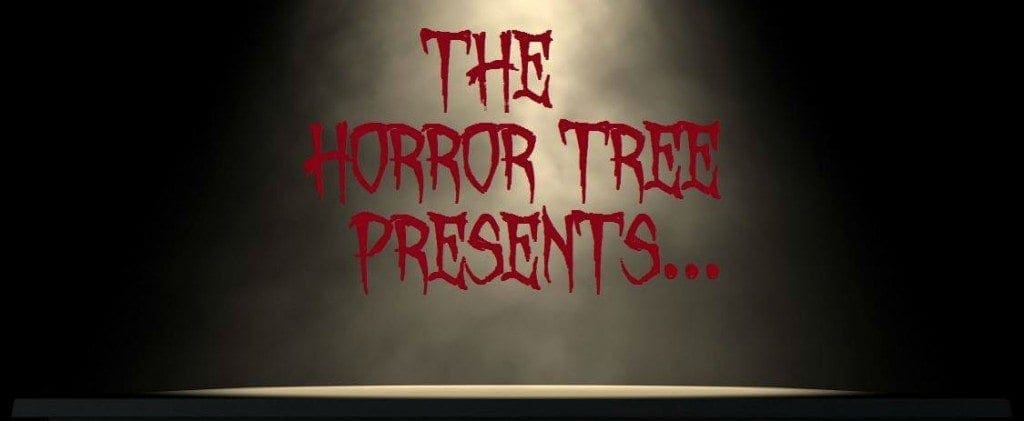
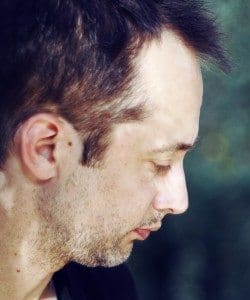 Scott – Author. Filmmaker. Photographer. You’re a man of many hats. Tell us a little about how you got started doing what you do.
Scott – Author. Filmmaker. Photographer. You’re a man of many hats. Tell us a little about how you got started doing what you do.
Andy – Well, my wife says I have too many tabs open in my brain. I think that’s a pretty accurate assessment. I’ve always been a big believer that if you really want to do something you should just get out there and give it a go. When I was at Uni I wanted to direct, so I started my own theatre company and wrote and directed for them. I was really green, making it up as I went along, but I learned a huge amount and absolutely loved every minute of it. I was lucky; I had a great team of actors and crew around me. We got good reviews and things snowballed from there. We toured around the UK for a couple of awesome years. My plays were dialogue heavy, soundtrack driven, Hitchcock inspired, black comedies. By the end of our third tour, I realised that I was trying to cram my feature ideas into a theatrical format. It seemed like a natural progression to try and make the move to film.
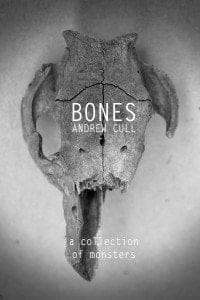 I adapted one of my scripts into a screenplay and began sending it out to agents, in the hope that someone would pick it up. I was hugely lucky and someone did.
I adapted one of my scripts into a screenplay and began sending it out to agents, in the hope that someone would pick it up. I was hugely lucky and someone did.
I spent the next few years writing for TV and film. That was a fantastic, but also frustrating time. When you write for TV and film you develop a lot of ideas that’ll never see the light of day. A lot of projects fall through. Producers can’t raise the money. Companies come and go. A lot of the time, what you write remains on the page and doesn’t get made. I found that more and more frustrating, to the point where I cracked and decided to do a full project myself. That was the Louise Paxton mystery.
The reception we received for the Louise Paxton series of videos was amazing. I still get fan mails about it now. When I set out to do Louise Paxton it was to prove that I could direct for the screen and to show that the ideas I wanted to explore would work and scare an audience. In some ways, it was a proof of concept for my feature The Possession of David O’Reilly [DOR] (UK title: The Torment).
Shooting the Louise Paxton mystery helped to get a producer on board for DOR and to raise the funds to shoot the feature.
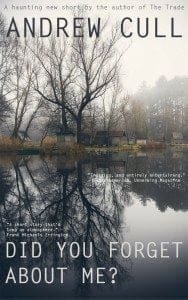 About a year after I finished DOR, I got married and moved out here to Australia. That presented me with a whole new set of opportunities. I’ve been storing up ideas for books for years and now I’ve got more time to explore them.
About a year after I finished DOR, I got married and moved out here to Australia. That presented me with a whole new set of opportunities. I’ve been storing up ideas for books for years and now I’ve got more time to explore them.
Scott – I see what your wife means about having too many tabs open. That sounds like a challenge that never goes away. What do you do when you’re not shooting movies and writing novels?
Andy – Mainly I’m planning what movies I want to shoot and what stories I want to write next. I keep a big list of all the ideas I have for projects. It’s spread across several sheets of A4, stuck to the wall of my garage. It’s got everything from flash fiction through to features and documentaries. At the moment, there are twenty-six projects on the board. Each time I complete one, I cross it off the list. Normally, I’ve added two or three more during the course of writing any given story.
I don’t really take a great deal of time out from my work. I genuinely love what I do, and so there’s always something I want to be doing. When I do take a break, I run and am training in Taekwondo. I also play and shoot videogames.
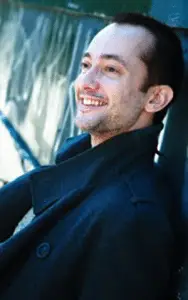 Scott – I think most writers are like that. It’s hard to turn away from what you find fun. But there’s a lot of effort involved, too. Which brings us to horror. It’s your genre of choice. What got you into it, and what kept you engaged with it?
Scott – I think most writers are like that. It’s hard to turn away from what you find fun. But there’s a lot of effort involved, too. Which brings us to horror. It’s your genre of choice. What got you into it, and what kept you engaged with it?
Andy – I’ve loved horror for as long as I can remember. I was the kind of kid who stayed up late on school nights reading ghost stories with a torch, under the covers so my parents wouldn’t know I was still awake. I’ve always enjoyed the creeping chill of a good ghost story. I love suspense. I love the build-up, and the exhilaration of a good scare.
When I was a kid holidaying in the UK, we spent a lot of time indoors watching it rain. That never worried me. Each county used to have these true ghost story books: Haunted Norfolk or Ghosts of Suffolk, that sort of thing. Wherever we went, I collected those books. I read them cover to cover and then cover to cover again. In those books, I first found my love of the paranormal. That’s a love that’s been with me, and it’s been a huge influence on my writing ever since.
In my opinion, horror is the most exciting genre to write in. There are so many different facets to the genre and so many avenues to explore with your writing. It’s a genre that actively promotes breaking the rules. Horror fans embrace innovation and invention. It’s a fantastically exciting genre to work in and an amazing community to be a part of.
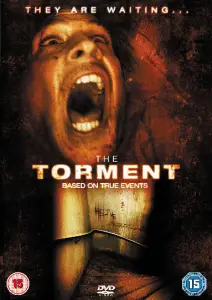 Scott – You mentioned Hitchcock earlier. Who are your idols in the horror genre?
Scott – You mentioned Hitchcock earlier. Who are your idols in the horror genre?
Andy – My idols are a mix of writers and directors. Hitchcock would have to be in there as having had the greatest influence on my career. He really was a master of his craft. There hasn’t been anyone who has matched him since. Watching his movies as a teenager had an incredible effect on me. I was lucky enough to watch Psycho without knowing what was going to happen. I wanted to learn how to direct because of his movies.
I vividly remember the first time I read Shirley Jackson’s The Haunting of Hill House. I love how it explores the nature of fear and horror. It’s a beautifully written, multi-layered ghost story. She’s a fantastic writer.
John Carpenter is definitely one of my idols. He’s directed many of my all-time favourite horror movies; The Thing, Halloween, The Fog, They Live, In the Mouth of Madness. That’s an incredible career. I love the fact that he’s written, directed and scored many of his movies. That shows how complete his vision is when he’s directing.
I could talk for hours about the directors and writers I admire. Sam Raimi, Stephen King, Stanley Kubrick, David Cronenberg, David Lynch, MR James, HP Lovecraft — it’s a long list! As well as someone who writes and directs horror I’m a huge horror fan.
Scott – Stephen King often mentions that there are three types of horror: The Gross-Out, the Unnatural Horror, and Terror. Do you agree with that estimation and, if so, which type of horror actually tingles your spine?
Andy – For me, the best horror is in touch with reality, there’s a sense it could really happen. I love stories that linger, that creep into our minds when we reach to turn the light out at night. I’m a big fan of the paranormal in horror. I grew up enthralled by Arthur C Clarke’s Mysterious World. Although I’m a healthy sceptic nowadays, stories that retain plausibility will always scare me more.
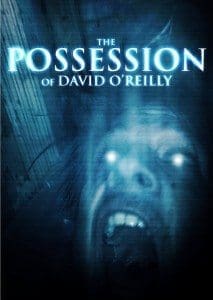 Scott – I noticed on a recent blog post that you were captivated a ghost story about the haunting of 50 Berkeley Square. I’m going to guess that this is where the plausibility factor comes into play. What fascinates you (then and now) about a haunted house in Central London?
Scott – I noticed on a recent blog post that you were captivated a ghost story about the haunting of 50 Berkeley Square. I’m going to guess that this is where the plausibility factor comes into play. What fascinates you (then and now) about a haunted house in Central London?
Andy – I first read about 50 Berkeley Square in a book called something like The 100 Scariest True Ghost Stories. I was 11, on school summer holidays. I’d borrowed the book from our local library. I read the whole thing in an afternoon. Now, I love ghost stories (did then, still do now) and it’s one thing to read about glimpsed ghostly figures and noises in the night, but when you stumble across ‘The Most Haunted House in London’ well, that was incredibly powerful. It’s the ultimate ghost story! I guess, when I was reading about all these ghosts, you wonder about the hierarchy, the systems behind the stories. What makes one place more haunted than the next? Why that location specifically? What incredible power lurks in the most haunted house in the world?
I still love the story of 50 Berkeley Square. It’s got everything that makes Victorian ghost stories great. It’s got a ‘thing’: a terrifying dark shape, possibly a demon; that can drive you to insanity just by witnessing it. It’s got people dying of fright. It’s got drunken sailors (the toughest of the tough) stumbling into the domain of ‘the thing’ and not living to regret it.
I’ve actually been to the site of 50 Berkeley Square, although I haven’t been inside the building, yet. Of course, the whole story is likely just a myth, but what if it isn’t?
Scott – You’ve also mentioned a particular interest in Spring Heeled Jack. Both Jack and 50 Berkeley Square are Victorian-era legends and supernatural horrors. Does that specific time period play a major role in your modern work?
Andy – Yeah, I love the Victorian era. There’s a huge sense of possibility about the period. The Victorians were great innovators and inventors; they genuinely believed they were on the cusp of the future. It was an era of science. And yet, coupled with that, you got the rise of spiritualism and a deep belief in the supernatural.
So, you’ve got a period of time that sees the invention of the telephone and, alongside that, you’ve got people who believe that this new invention will allow them to talk to the dead. Even Tesla and Edison both worked on ‘spirit phones’ to communicate with ghosts. So you have a period, very different from now, where science and the supernatural often went hand in hand. It’s an era where stories like Spring Heeled Jack and 50 Berkeley Square were both headline stories in the top newspapers. There was a sense that, while science was propelling us forward, the strange things that lurked in the darkness beyond the reach of the city’s gas lamps were very real. To a young ghost hunter (and even a considerably older writer) that’s incredibly exciting.
While I haven’t written a piece that’s directly set in the Victorian era, that sense of the supernatural being close at hand is definitely apparent throughout my writing.
Scott – So, Victorian-era spooky. Ghost stories. Other horror writers, filmmakers, and genre masters. What other sources are major sources of inspiration?
Andy – Train rides, long walks, and an uncanny knack for being able to see the worst possible case scenario in any given situation.
Scott – That’s a ton of names and titles to run with. Say that I’m new to horror and known little about the genre. What’s a good place to start?
Andy – I’d lend you one of my copies of The Haunting of Hill House, and get ready for you to come back the next day and raid the rest of my library.
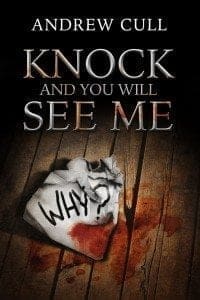 Scott – That sounds like the process most creatives follow. They start out as fans, as part of an audience, and then start telling their own stories. On the subject of writing: Start to finish, what does your writing process look like?
Scott – That sounds like the process most creatives follow. They start out as fans, as part of an audience, and then start telling their own stories. On the subject of writing: Start to finish, what does your writing process look like?
Andy – Where I start in a story varies from project to project. Most ideas begin as a seed, often a scene, sometimes a few lines of dialogue, which could fall at any point in the story. Sometimes that’s a conflict, sometimes it’s a scene I think would be funny, maybe suspenseful. I’ll jot that down in my phone or often just carry it around in my head. That can go on for a few weeks while the idea fills out. More scenes might come, more conversation, a better sense of a greater plot. When I feel I’ve got an idea that works, I’ll sit down at my laptop or my plotting board, and commit it to paper.
My plotting board is central to my writing. Giving it a name makes it sound a bit more impressive than it actually is. The plotting board is a long piece of board (about 130cm / 52in long.) On the board, I stick a series of sheets of A4 paper. Then I start at a point in the story (not necessarily the beginning) and I work the plot through until I have an A to Z (a full outline of the plot from beginning to end). This is one of my favourite parts of the writing process. Working the plot out for me is like watching a good trailer for a movie. It’s all the most exciting moments in a short space of time. It’s the bones, but with that bit of dialogue that I really like, or that suspenseful scene I know is going to work well — the twist reveal, the moment the characters first see the monster, the action, the laughs — all slowly coming together as I work the board.
I very rarely start to write until I’ve got an outline I’m happy with, that I know works. Now, one of the reasons for this is that if you’ve got a great idea but you’ve no idea where that idea is going to take you, then you’ve no idea how to pace that story. I’m speaking broadly here. A lot of what I write will have a reveal sequence within it: a key moment of plotting that will reveal a twist or a sharp turn in the plot. I know some writers like to write by the seat of their pants, but I prefer to do that for dialogue and description rather than plot. That’s not to say that I don’t change things as I write. I’ll often return to the plotting board as I’m working through a project but I don’t tend to start until I know where I’m going.
Once I’ve got an outline, I’ll hit the laptop. I’ll often work from the morning until the evening writing. I don’t have set hours or a specific amount of time I’ll write for. I’m not very scientific about it. I just write until the story is completed. The amount of time that takes depends on the project. My novel Remains, which is due out this October, took me 18 months to write. Hope and Walker took two weeks. I can produce a feature script in about three months, but prose generally takes longer.
I’m not a writer who rushes through a first draft and then goes back to work that draft into shape. I can’t continue to another scene unless I’m happy with how the proceeding scene has worked out. That’s the same for film and books. So, I’ll write a scene, and if I’m not happy with it I’ll write it again. I’ll do that again and again (depending on the scene) until I’m happy with what I’ve got and can move on. I’ll keep all those revisions in the draft (beneath the main body of the text) in case there’s something in there I might want later on. My last novella was around 24,000 words long. To write it, I wrote over 50,000 words. That extra 26,000 is drafting within the draft. By the time I get to the end of my first draft, I’m where some writers are by their fourth. When I worked with my last agent, we used to put DRAFT 4 on the front of my feature scripts even though they were my first draft. There’s a weird idea in the industry that if you haven’t redrafted your work several times it can’t be any good.
Scott – So plotting, rather than pantsing. Got it. Do you apply that process regardless of project, or do you treat film scripts different than, say, novel drafts?
Andy – The process for my writing is the same for feature scripts and novels. The only time it changes is when I write flash fiction. For flash fiction, I’ll walk around with the idea in my head for a few days before hitting the laptop and hammering the idea out in a single session of writing.
Scott – I read in one of your bios that regardless of the piece or the length of the narrative, you strive to write character-driven horror. What does that mean to you?
Andy – Horror sometimes gets a bad name for using characters that are a bit 2D — characters with cookie cutter traits who just feel like they’re there to serve a plot point. I remember, when I first wrote The Possession of David O’Reilly. I wrote it in part as a reaction to a lot of the movies I was watching at the time which were populated with unlikeable characters that you couldn’t wait to get an axe in the head. It seemed to all be about the gore or the clever plot twist and not about the characters. Horror was becoming a cold and calculated experience. I wanted to change that. I wanted my viewers and readers to relate to the characters (I think horror’s a lot scarier if you do). I want people who watch my movies and read my books to care about what happens to the characters in my stories. The characters always come first for me.
Scott – In some respects, it sounds like you isolated a trend in horror – that the genre was becoming cold and calculating – and used your work to push back against it. You’ve also mentioned that there was some luck involved in getting your work picked up. That being said: What are the greatest challenges you find yourself up against in the industry markets today?
Andy – Things have changed a lot since I started out as a writer, and generally for the better. Nowadays, it’s easier than ever to get your work to an audience. The challenge then becomes getting your work seen in the crowd, and it’s a very crowded marketplace. That said, I’m all for the meritocracy of an audience deciding what they like the most, rather than an out of touch agent or producer who, years later, admits they turned down JK Rowling.
I’ve always hated how elements of the industry were old boy’s clubs, places where it was more important what family you were from than the quality of what you write. Film has always been rife with that. If greater access leads to less nepotism then I’m all for that.
Scott – For someone looking to break into the world of horror, what advice would you give them?
Andy – Get out there and give it a go. One of the greatest hurdles to overcome is getting started. Don’t for a moment think that you can’t do it. You can. You definitely can. I made Louise Paxton for less than £500, and it raised the funding for my feature The Possession of David O’Reilly. How many people do you think told me it wouldn’t work, that it wasn’t worth it? I think I proved those people wrong. You can too.
Do you have an idea for horror novel? All you need is a laptop and time. What’s stopping you giving that a go? Send me your novel when it’s done. I’ll read it. In fact, I look forward to reading it. If you want it badly enough, and you’re prepared to put in the hard work, because there’s a lot of that, one day you’ll get to where you want to be.
Scott – In the meantime (between reading all the novels that are about to land in your inbox), you were recently featured in a PC Gamer article as a screenarcher — essentially a video game photographer. Tell us a little about that.
Andy – Being a screenarcher is a hobby I’ve had for a couple of years now. It started when I first began writing and modding for Skyrim. I began taking promotional shots of my characters for when I released them. I discovered that I really enjoyed doing character portraits. I set about trying to achieve the most photo-real portraits I could within the Creation (Skyrim) engine. Over time, that grew to become a love of shooting game characters and worlds. Now, I find I can’t play a game if I can’t shoot it.
Over the past couple of years, I’ve shot a lot of games. Skyrim is still my all-time favourite. I think I’ve produced my best work within it. Recently, I shot Hellblade, Assassin’s Creed Origins, Ghost Recon Wildlands. My favourite game from last year, as both a game to shoot and to play, would have to be The Last of Us. What an incredible game that is! If I could pick any game to adapt as a movie, that would be it.
The PC Gamer article showcased my best shots from 2017. As a gamer, it’s a bit of a dream come true to be featured on PC Gamer. Yeah, that was pretty cool.
I have a Flickr page where I upload my video game shots: www.flickr.com/andrewcull. I try to update it whenever I’m shooting something new.
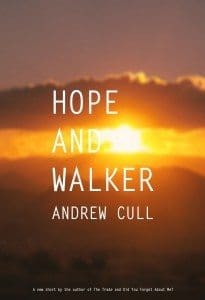 Scott – What’s one excerpt from your work that you feel most defines you as an author?
Scott – What’s one excerpt from your work that you feel most defines you as an author?
Andy – That’s a really tough question! Here’s a couple that I like:
“Way I look at it, you get to a point in your life when you turn a corner and realise that’s about all you’re gonna get. If you can face down that knowledge and not crack open a bottle, well, you’re a better person than I am. If I make it to eighty I intend to start smoking again.” – Ellie Ray, Knock and You Will See Me.
“Being scared’s good,” Grandpa Walker had told me once. “Stops us from doing stupid things.” It hadn’t stopped me. ― Em Walker, Hope and Walker
From Knock and You Will See Me:
Death is silence. It’s not the crying and the grieving. It’s not the condolences or the pastor’s patronising words. It’s not the pain, like a heart attack, that seizes you in the dark when you close your eyes. No, it’s the never-ending, fucking silence of it. It’s never hearing their voice again. Not a word.
Not a sound.
Not ever again.
Scott – Where can people go to follow you and find out more about your work?
Andy – I blog most days of the week on my Facebook page: www.facebook.com/officialandrewcull
That’s where I post first about what I’m writing or shooting.
I’m also on Twitter @andrewcull.
Follow me on my Flickr if you like my videogame photography: www.flickr.com/andrewcull
Thanks very much for having me on the Horror Tree!
- About the Author
- Latest Posts
Marc “Scott” Summers is a freelance writer and photographer obsessed with travel, photography, and fiction. When he’s not chasing the perfect picture, he’s probably hiding in a quiet room with a good book. He’s currently writing and publishing one story every day as part of his 365 Story-a-Day project. Find more of his work at www.hellosummers.com.




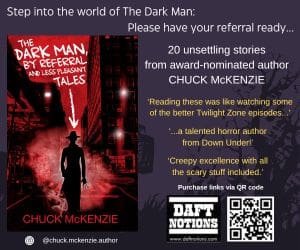







Terrific interview!